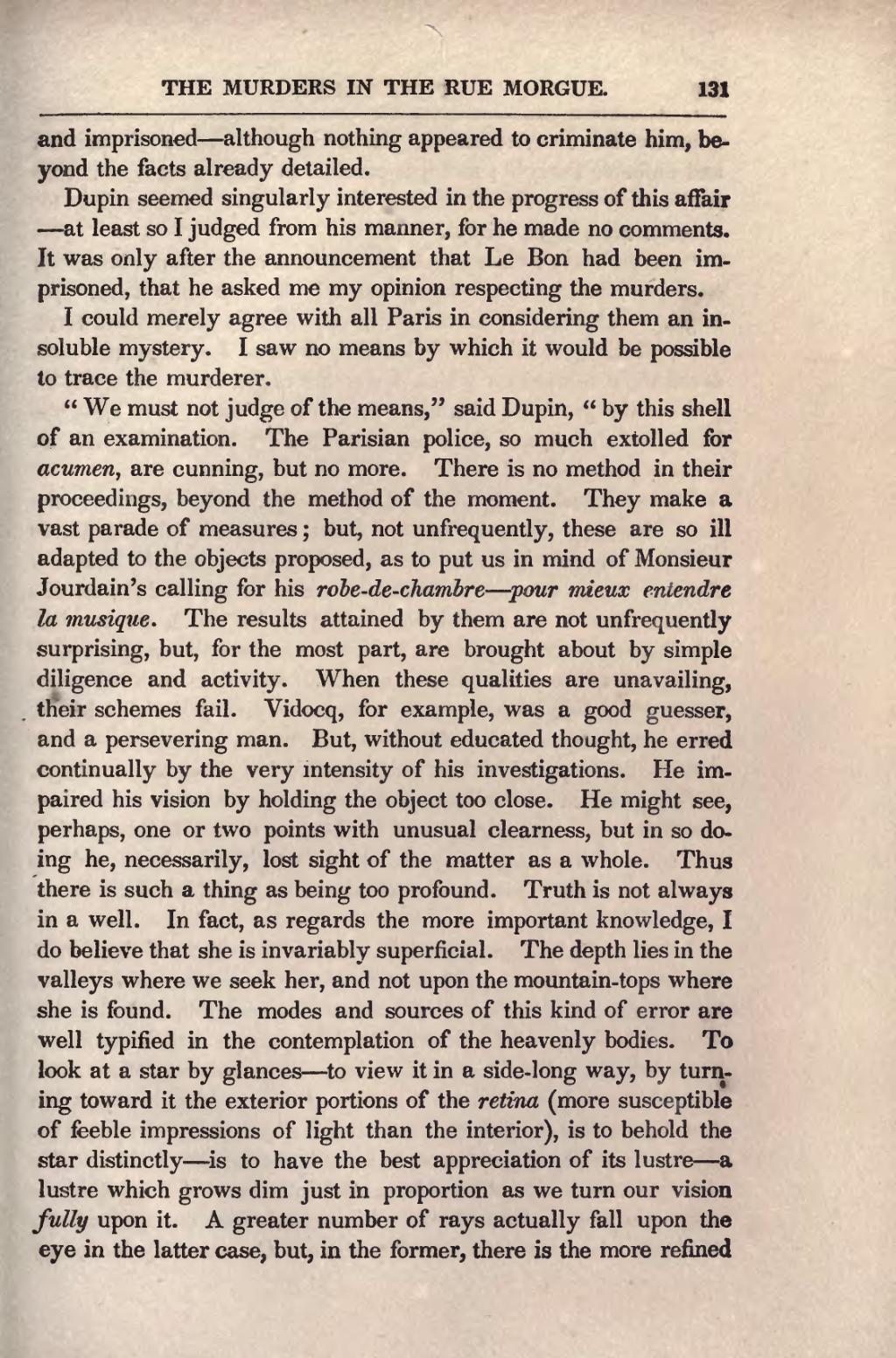and imprisoned—although nothing appeared to criminate him, beyond the facts already detailed.
Dupin seemed singularly interested in the progress of this affair—at least so I judged from his manner, for he made no comments. It was only after the announcement that Le Bon had been imprisoned, that he asked me my opinion respecting the murders.
I could merely agree with all Paris in considering them an insoluble mystery. I saw no means by which it would be possible to trace the murderer.
"We must not judge of the means," said Dupin, "by this shell of an examination. The Parisian police, so much extolled for acumen, are cunning, but no more. There is no method in their proceedings, beyond the method of the moment. They make a vast parade of measures; but, not unfrequently, these are so ill adapted to the objects proposed, as to put us in mind of Monsieur Jourdain's calling for his robe-de-chambre—pour mieux entendre la musique. The results attained by them are not unfrequently surprising, but, for the most part, are brought about by simple diligence and activity. When these qualities are unavailing, their schemes fail. Vidocq, for example, was a good guesser and a persevering man. But, without educated thought, he erred continually by the very intensity of his investigations. He impaired his vision by holding the object too close. He might see, perhaps, one or two points with unusual clearness, but in so doing he, necessarily, lost sight of the matter as a whole. Thus there is such a thing as being too profound. Truth is not always in a well. In fact, as regards the more important knowledge, I do believe that she is invariably superficial. The depth lies in the valleys where we seek her, and not upon the mountain-tops where she is found. The modes and sources of this kind of error are well typified in the contemplation of the heavenly bodies. To look at a star by glances—to view it in a side-long way, by turning toward it the exterior portions of the retina (more susceptible of feeble impressions of light than the interior), is to behold the star distinctly—is to have the best appreciation of its lustre—a lustre which grows dim just in proportion as we turn our vision fully upon it. A greater number of rays actually fall upon the eye in the latter case, but, in the former, there is the more refined
